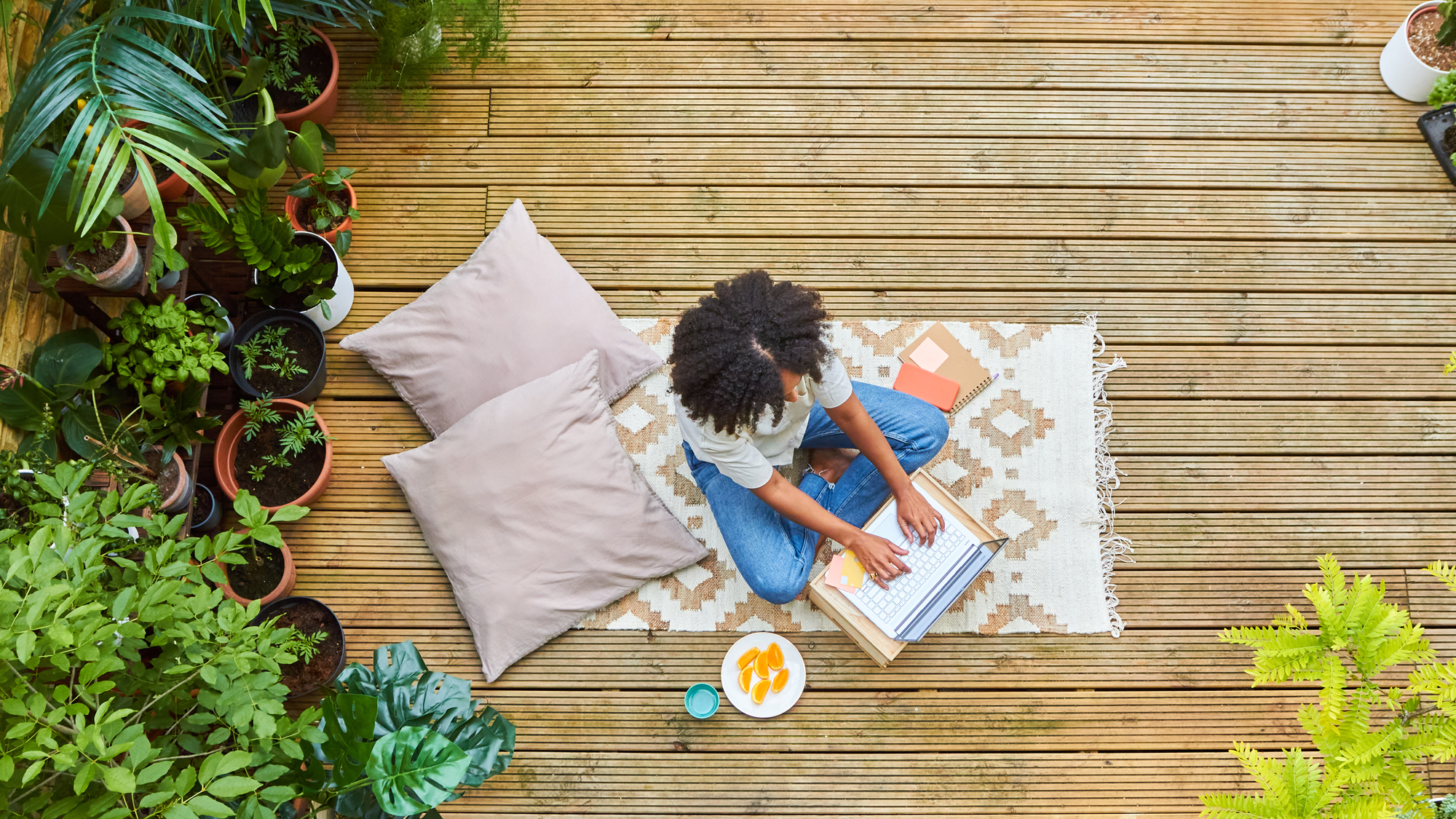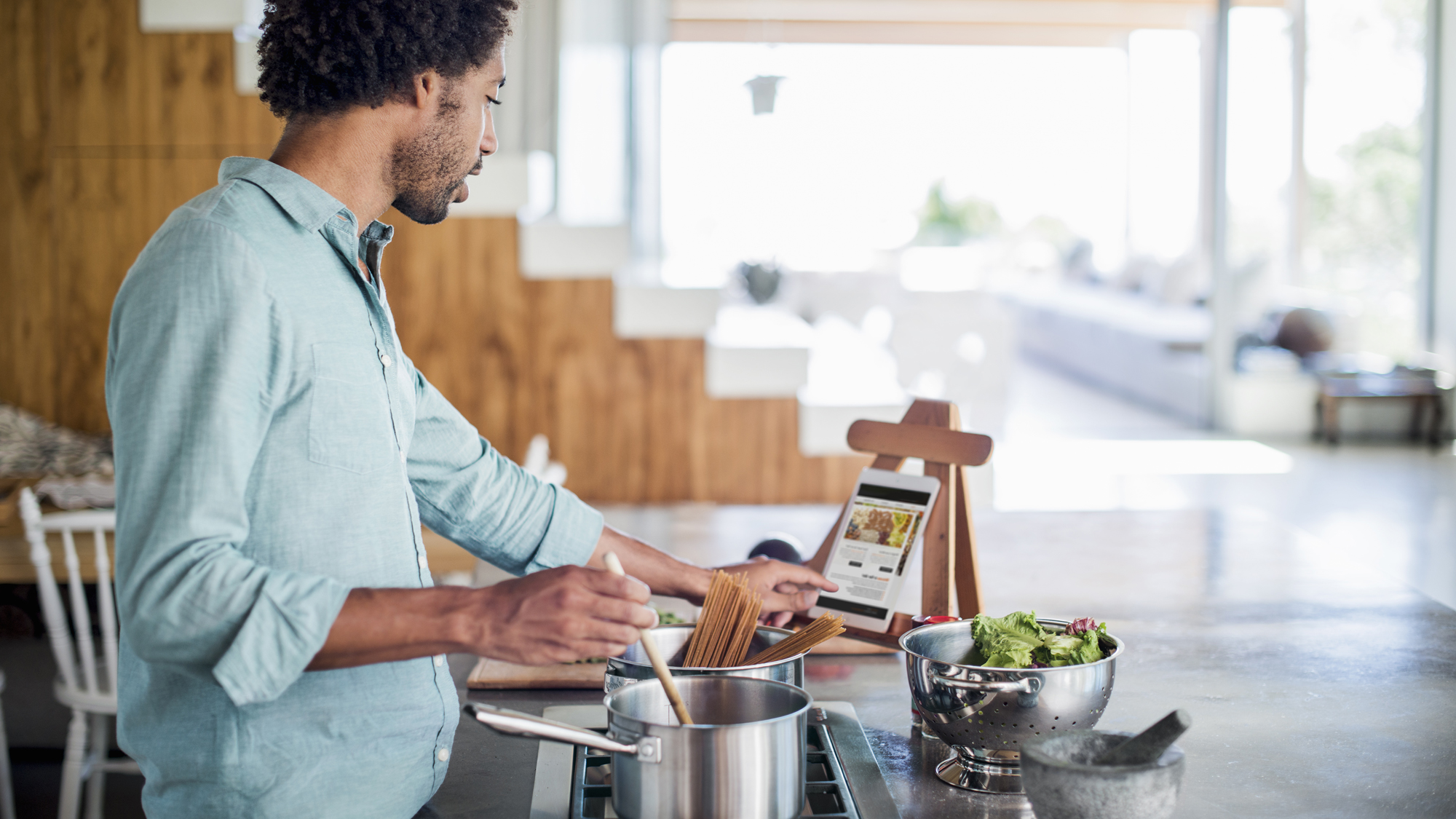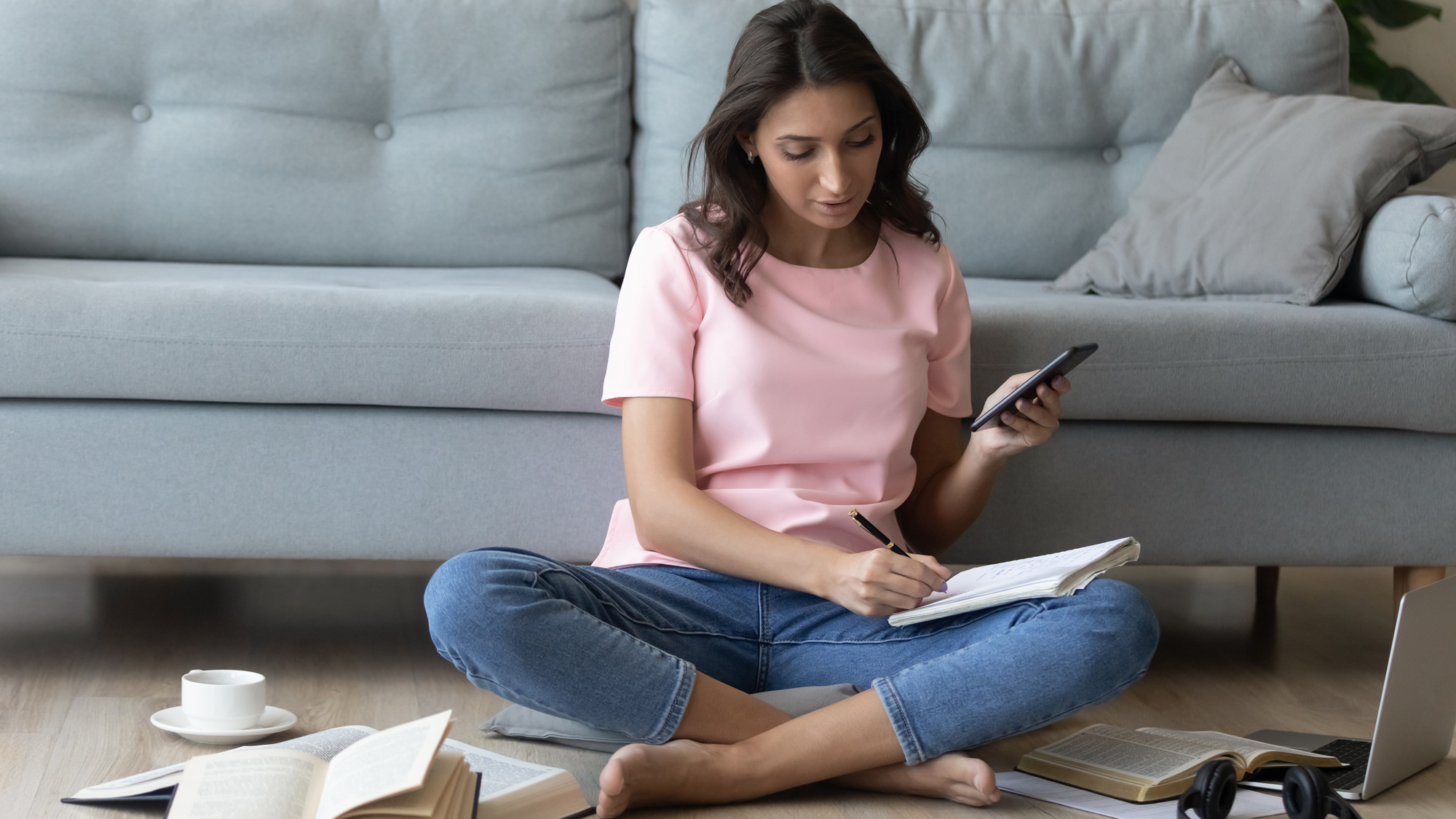Self care ideas: protect your wellbeing without breaking the bank
These low-cost self care ideas are an affordable way to put yourself first


Start your week with achievable workout ideas, health tips and wellbeing advice in your inbox.
You are now subscribed
Your newsletter sign-up was successful
Self care ideas like getting a massage, taking a yoga class, or buying scented candles are a popular way to unwind and relax. But not every self care activity has to cost money; you can look after your body and mind without breaking the bank.
If you find that you need a bit of a pick me up during the darker winter months, adding one of the best SAD lamps to your home is a good value way to get some daily light therapy. You don't have to be going through a tough time to prioritize your wellbeing, though.
According to Stephanie Taylor, founder of health and wellbeing store StressNoMore, "Putting yourself first isn't easy, especially if you've grown up being told to think about others. Everyone is different, and it can take time to find things that you truly enjoy doing."
Whether you want to carve out some me-time or build a new routine around your health and happiness, there are plenty of self-care ideas to try out. Some people start with their home environment, like using one of the best diffusers for essential oils for a bit of aromatherapy.
You might prefer taking a walk out in nature, setting aside a few minutes each day to meditate, or using a journal to reflect on the day. Looking for inspiration? We've rounded up some of the top affordable self care ideas to get you started.
What is self care?
Self care is a newer term for an old idea; looking after yourself. With modern technology and hectic work lives, it can be hard to prioritize that, which is why many people go searching for self care ideas to help them relax and take some time to unwind.
The World Health Organization's (WHO) formal definition says self care is "the ability of individuals, families and communities to promote health, prevent disease, maintain health, and to cope with illness and disability with or without the support of a healthcare provider."
Start your week with achievable workout ideas, health tips and wellbeing advice in your inbox.
In principle, it's a great idea, but it's not always straightforward. As Taylor says, "life can be difficult to balance, from keeping fit and healthy, staying in touch with friends, progressing in your career and keeping on top of household jobs."
Self care is about finding a way to juggle those responsibilities while also protecting your mental and physical health. From eating well and getting enough sleep to minimizing stress and doing things you enjoy, self care ideas are activities that make you feel good.
You don't have to be going through a rough time to practice self care, but it's especially important to look out for yourself if you are feeling down or struggling with your mental health. Sometimes, you might find that these self care ideas aren't doing the trick.
You can locate immediate help using the US government's dedicated mental health website, find information and advice through the mental health charity Mind, and get in touch with the Samaritans by emailing jo@samaritans.org or calling 116 123 for free in the UK.

1. Cook a meal from scratch
At the end of a long day, it can be hard to find the motivation to cook, but creating a home-cooked meal from scratch is one of the best self care ideas going. Choosing a recipe, selecting the ingredients, and experimenting with techniques are fun in their own right.
But learning how to eat healthily by making your food has knock-on impacts as you start to notice how you feel after eating. You may feel over-tired after high-sugar snacks, whereas oats, grains, and fruits can make you feel more energetic.
Plus, cooking is a great way to treat yourself to some aromatherapy. Herbs, garlic, onions, and many other spices have distinctive, pleasing smells that can help you feel brighter, and you get the satisfaction of a home-cooked meal at the end too.
2. Give meditation a try
Meditation is one of the most powerful self care ideas, and it doesn't have to cost a thing. All you need is a bit of time, even just 10 minutes a day, and a quiet place to sit. There are also many ways to learn how to meditate, from apps to YouTube tutorials.
Mindfulness meditation is the most popular style. With this, you close your eyes and focus on your breath. This helps you relax in the moment, strengthening the connection between your mind and body.
If you can turn it into a habit and meditate every day, research has found that it can have a significant impact on your wellbeing, allowing you to be kinder to yourself, reducing anxiety and depression, and helping manage stress as well.
3. Sleep better, not longer
Getting a good night's rest is one of the most important ways to look after our health, achieve our fitness goals, and make the working day less of a struggle. And while research published in the journal Sleep, suggests we should aim for eight hours a night, that's not always possible.
You can still get the health-boosting benefits by improving your sleep quality rather than focusing solely on the length. Learning how to fix your sleep cycle can help, as you can use these techniques to create a bedtime routine that'll get you ready for sleep.
The goal is to prepare your body for sleep by taking some downtime before you get into bed and creating a routine by going to bed and waking up at the same time each day. These habits make it easier to leave the day behind and drift into restful shut-eye.

4. Cut back on coffee and caffeine
Many of us use coffee as a crutch to make up for a lousy night's sleep. The upside to sleeping better is that you won't have to rely on caffeine to stay alert. Of course, having a cup first thing might be a highlight of the day, and you don't need to cut that out.
But overconsumption of anything is bad for us, and that's true of caffeine too. It can make us feel anxious, physically jittery, and impact our sleep. Cutting back helps reduce these side effects and has a positive knock-on effect on our sleep and wellbeing.
As with other things, moderation is key. According to a study published in Nutrients, drinking around three cups of coffee a day can keep your digestive system ticking along and promote 'good' gut bacteria, which play a pivotal role in our physical and mental health.
5. Drink plenty of water to stay hydrated
If you work out regularly, you probably take one of the best water bottles for the gym along with you to stay hydrated. This is important, but it's just as essential to drink water throughout the day too.
According to a study published in The British Journal of Nutrition, dehydration impacts your memory, can cause problems with your sight, and even impact your mood. Keeping topped up has the opposite effect, as it improves your mental performance.
If you enjoy a coffee, tea, or soft drink, you don't have to cut those out. But these drinks have other effects on our bodies, so it's worth alternating them with a glass or two of water. This way you'll feel better, but also save money at the same time.
6. Go for a walk outside
Heading out for a walk is a great way to stay active and get some low-impact movement into your day. But whether you live in a leafy suburb or on an inner-city street, there are considerable benefits to this self care idea. And, importantly, it's absolutely free.
You can use the walk/run technique to learn how to start running, but you don't need to have a specific goal or target in mind when you head out. Walking gives us time away from work and household chores, which gives our minds some downtime.
But being outside also helps keep our vitamin D levels topped up, and exploring nature, noticing plants, birds, and other animals has a beneficial effect on our wellbeing too. Plus, you can use the best workout earbuds to catch up on podcasts or your favorite music.

7. Use your smartphone to learn a new skill or hobby
Most people recommend cutting your screen time to look after your mind; social networks, breaking news, and instant messaging can be pretty stressful and overwhelming. Plus, a review published in the journal Chronobiology International found that the light from your screen can interfere with your sleep.
But there are a few ways to use your smartphone to improve your mental health. From meditation and mindfulness apps to audiobooks and recipes, you can find plenty of free ways to be creative, learn more, and relax without leaving the couch.
The past few years have seen many of us switch to at-home workouts, but you don't always need a pricey online studio to stay active. Some of the best fitness apps are free and help you change your diet, move more, and feel better too.
8. Start a journal
Keeping a daily journal might sound like a chore rather than a way to relax or unwind. But whether you jot down a few thoughts, create a diary, or put together a gratitude journal, you'll find that it's a self care idea that proves its worth.
Reflecting on the day using a journal or diary helps make your thoughts more manageable, easing the stresses of work and social events. Gratitude journals focus your attention on what you appreciate rather than what's been happening around you.
It's easy to get lost in negative thoughts, but listing the things you're grateful for can make a big difference. There's evidence for this effect, too, as a study published in Social Behavior and Personality found "grateful thinking improved mood" and overall wellbeing.

James is a London-based journalist and Fitness Editor at Fit&Well. He has over five years experience in fitness tech, including time spent as the Buyer’s Guide Editor and Staff Writer at technology publication MakeUseOf. In 2014 he was diagnosed with a chronic health condition, which spurred his interest in health, fitness, and lifestyle management.
In the years since, he has become a devoted meditator, experimented with workout styles and exercises, and used various gadgets to monitor his health. In recent times, James has been absorbed by the intersection between mental health, fitness, sustainability, and environmentalism. When not concerning himself with health and technology, James can be found excitedly checking out each week’s New Music Friday releases.